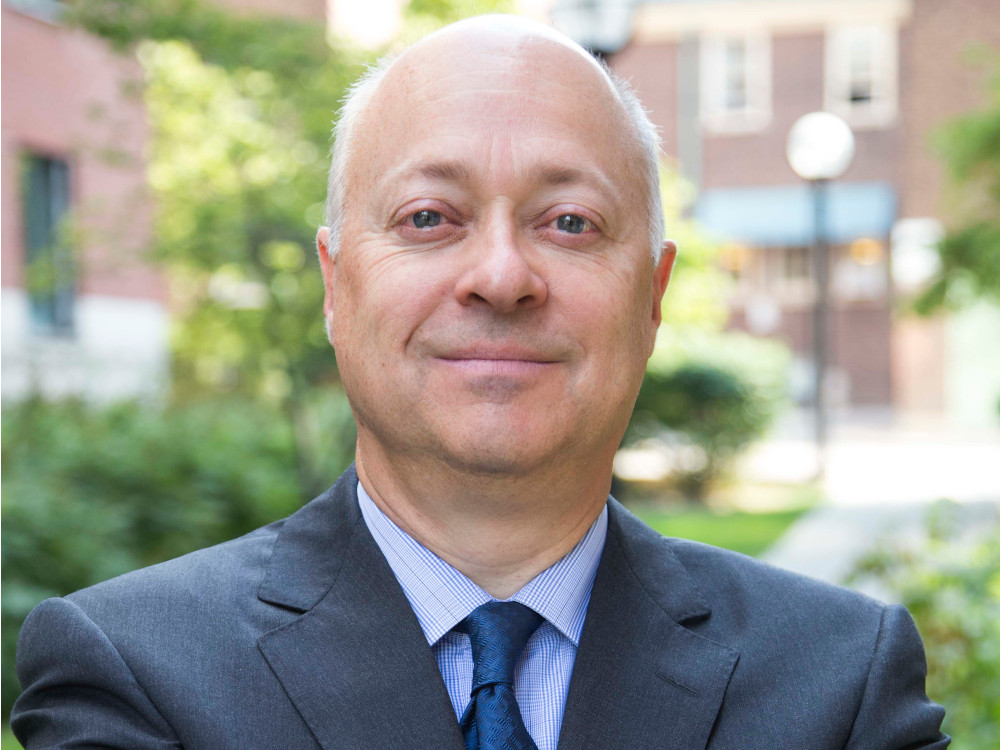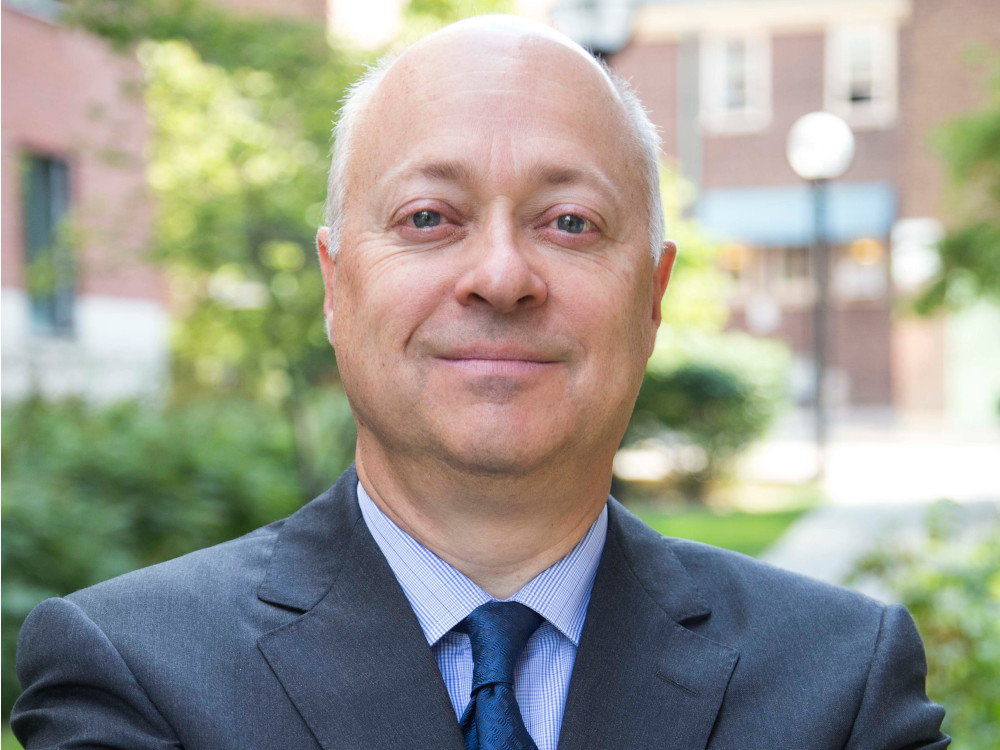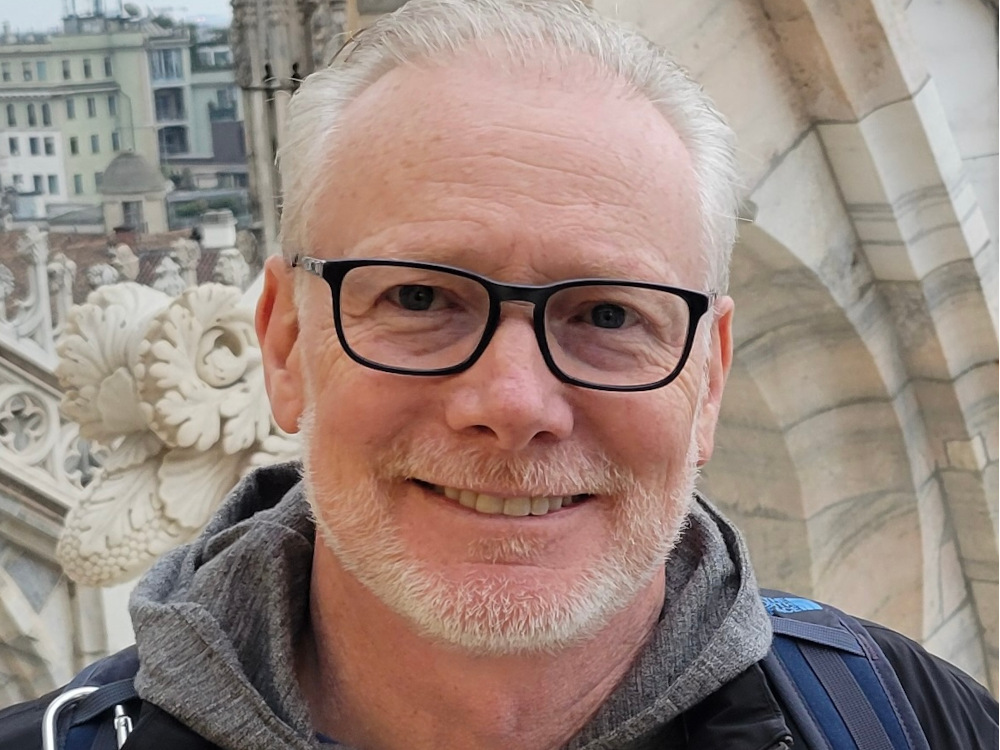In all the 40-plus years I have spent advising wealthy families and managing their affairs, I have found one principle that consistently separates flourishing families from struggling ones: trust.

Trust is the invisible currency that underpins every decision, every relationship and every legacy. Without it, even the most carefully constructed structures—legal entities, investment strategies, governance frameworks—can collapse under their own weight.
Trust is not abstract. It plays out in concrete ways: the fiduciary duty of an advisor acting in a client’s best interest, the role of a trustee holding responsibility for assets across generations, the choice of partners in business and philanthropy, the credibility of leaders and institutions in society, even the foundations of democracy itself. Each depends on the same fragile, vital substance: our willingness to believe in the reliability, integrity and intent of others.
For wealthy families and the professionals who serve them, trust is not optional. It is the foundation upon which wealth preservation, governance and well-being are built. Trust is not merely a pleasant byproduct of good relationships; it is the central operating system.
The word itself: where trust comes from
The English word trust traces back to Old Norse traust, meaning “confidence, help, protection.” It shares roots with the Proto-Germanic traustam, connoting “firmness, steadfastness, reliability.” The word carried dual senses: the comfort of reliance and the obligation of responsibility.
In Old English, treowe (related to “true”) emphasized loyalty and faithfulness. To be “true” was to be trustworthy, and to trust was to anchor oneself in that fidelity. Over time, trust evolved to denote both the reliance placed in someone and the duty to honour that reliance.
That duality—belief and obligation—is central to how we think about trust today. It is not just a passive hope that someone will behave well. It is also an active commitment to act in ways that justify the confidence others place in us.
Trust in wealth and fiduciary duty
Trust shows up everywhere once you start to look for it. For families of significant wealth, trust is institutionalized in fiduciary duty. The very idea of a fiduciary relationship is that one party holds power or discretion not for their own benefit, but for the best interest of another. It is perhaps the clearest professional embodiment of trust in modern law and finance.
When clients place their assets under the care of an advisor or a family office, they are not merely outsourcing tasks—they are extending trust. They are relying on the professional’s integrity, competence and judgment. If that trust is betrayed—through negligence, conflicts of interest or self-dealing—the consequences reverberate far beyond balance sheets. They can fracture families, erode reputations and even corrode the next generation’s confidence in stewardship.
This is why fiduciary standards matter so profoundly.
Trustees and the weight of responsibility
Few roles embody trust more heavily than that of a trustee. As a trustee of multiple trusts myself, I feel that duty of care intensely. To be a trustee is to hold legal title to assets that are not your own, with a duty to manage them solely for the benefit of others. The role requires integrity, competence, impartiality and prudence.
In my own career, I have found that the best professional relationships are those where trust eliminates the need for exhaustive oversight.
Tom McCullough
But it also requires something more elusive: judgment. A trustee must interpret both the letter of the trust deed and the spirit of the settlor’s intent, while balancing the competing needs of beneficiaries across generations. The task demands not only legal acumen, but also moral clarity and emotional intelligence.
Families often discover that the choice of trustee is among the most consequential decisions they make. A well-chosen trustee can safeguard harmony and stewardship; a poorly chosen one can breed suspicion, resentment and endless litigation.
Trust in business partnerships
In business, trust accelerates progress. When partners know they share the same values and goals, decisions happen quickly. They don’t need to parse every word of a contract or second-guess every move. Stephen Covey, the author of The 7 Habits of Highly Effective People, once said that “nothing is as fast as the speed of trust.” I have witnessed this in countless boardrooms and family meetings.
Covey also observed that trust is a “performance multiplier.” Low-trust environments are bogged down by bureaucracy, monitoring and suspicion; high-trust environments flow with energy, speed and innovation.
In my own career, I have found that the best professional relationships are those where trust eliminates the need for exhaustive oversight. Yes, contracts are necessary, but they become safety nets rather than cages. The real work is propelled by mutual understanding and confidence.
Trust in society and institutions
Zooming out, trust is also the glue of society. We rely on trust when we deposit money in a bank, when we send our children to school, when we board an airplane, or when we obey traffic lights. We operate with the assumption that institutions and systems will function as promised.
And yet, public trust in institutions—governments, corporations, media, even the professions—has eroded dramatically in recent decades. Surveys consistently show declining confidence, particularly among younger generations. The implications are serious: when trust in institutions falters, cynicism rises, social cohesion weakens, and polarization hardens.
For wealthy families, this erosion of societal trust adds layers of complexity. They must consider not only how to maintain trust within the family, but also how to act in ways that build trust with the communities and societies around them.
Democracy and dictatorship: trust versus fear
At the broadest level, democracy itself rests on trust. Citizens must trust that votes will be counted fairly, that laws will be applied consistently and that leaders will honour the will of the people. Democracy requires faith in systems and in one another.
Dictatorship, by contrast, thrives not on trust but on fear. Citizens comply because they are coerced, not because they believe. Such systems may endure for a time, but they are brittle. Fear breeds silence, not loyalty. When pressure mounts, the absence of trust becomes the system’s undoing.
The lesson for families and advisors is clear: lasting governance—whether of nations or of family enterprises—cannot be built on coercion. It must be built on trust.
The Trust Equation: a practical lens
Authors David Maister, Charles Green and Robert Galford provided a simple but profound formula in The Trusted Advisor:
Trustworthiness = (Credibility + Reliability + Intimacy) ÷ Self-Orientation
- Credibility: Do we demonstrate expertise and knowledge? Are our words believable?
- Reliability: Do we consistently do what we say we will do?
- Intimacy: Do clients feel safe confiding in us? Do we create a sense of closeness and empathy?
- Self-orientation: Are we focused on ourselves, or on the needs of others? The higher our self-orientation, the lower our trustworthiness.
I have taught this equation in my MBA classes for the last 15 years and shared it with countless staff and clients over the years.
This formula is powerful because it translates an abstract quality into concrete behaviours. Advisors who want to be trusted must be not only smart but also consistent, empathetic and client-centred. Families who want to build trust among themselves must nurture credibility (competence), reliability (follow-through), intimacy (emotional openness) and selflessness.
For wealthy families navigating succession, governance and legacy, the trust equation offers a practical diagnostic tool: When trust is faltering, which component is breaking down? Is it a lack of credibility, an inconsistent pattern, a failure of emotional openness, or too much self-interest?
Trust as the glue of family wealth
Substantial wealth changes the trust equation in subtle ways. It creates opportunities to institutionalize governance, hire advisors or create structures that reinforce reliability. But it also raises the stakes.
Money attracts opportunists. It can amplify suspicion (“Are you advising me for my benefit, or yours?”). It can even warp family relationships, making siblings or potential life partners wonder whether generosity is genuine or strategic.
I have seen families who live in the shadow of distrust, including siblings who will not share financial statements, cousins who assume hidden motives, parents who withhold information for fear of conflict. These families often spend more on lawyers and accountants than on philanthropy or innovation.
By contrast, I have seen families where trust is so strong that it liberates. Parents empower children early. Siblings collaborate across ventures. The rising generation feels safe enough to fail, and thereby learns to lead. In such families, wealth is not a wedge but a platform.
Building trust: five actionable steps for families and advisors
So, what does this mean for families and the professionals who serve them?
- Transparency as default: Information hoarded is suspicion created. Families should share as much as is appropriate, especially about vision, values and long-term plans.
- Reliable governance: Regular family meetings, clear decision rules and transparent reporting all build reliability into the system.
- Intentional intimacy: Trust requires safe spaces. Families need rituals—retreats, shared experiences, honest conversations—that foster emotional closeness.
- Choosing fiduciaries wisely: Advisors and trustees must be selected for integrity as much as expertise. Reputation is important, but character matters more.
- Checking motives: Self-orientation is the great trust killer. Advisors must constantly demonstrate that they put client interests first. Families must likewise guard against self-interest that corrodes collective purpose.
Trust as currency
Trust is not a soft concept. It is the hardest currency of all. It determines whether families remain cohesive, whether advisors are listened to, whether businesses thrive, and whether societies endure.
For families of significant wealth, trust is both the greatest asset and the greatest risk. It can’t be invested passively. It must be actively cultivated, protected and renewed.
The Norse root of “trust” reminds us it once meant both confidence and protection. That meaning still rings true. To trust is to place confidence in others. To be trustworthy is to protect that confidence as though it were the most precious asset in the world.
Because it is.
Tom McCullough is founder and chairman of Northwood Family Office.
The Canadian Family Offices newsletter comes out on Sundays and Wednesdays. If you are interested in stories about Canadian enterprising families, family offices and the professionals who work with them, but like your content aggregated, you can sign up for our free newsletter here.
Please visit here to see information about our standards of journalistic excellence.




